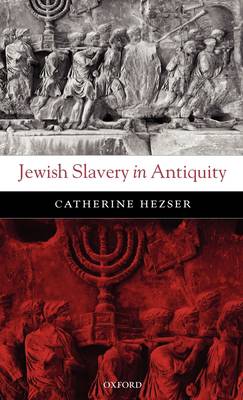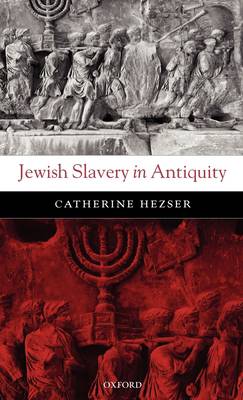
- Afhalen na 1 uur in een winkel met voorraad
- Gratis thuislevering in België vanaf € 30
- Ruim aanbod met 7 miljoen producten
- Afhalen na 1 uur in een winkel met voorraad
- Gratis thuislevering in België vanaf € 30
- Ruim aanbod met 7 miljoen producten
Zoeken
Omschrijving
This book is the first comprehensive analysis of Jewish attitudes towards slavery in Hellenistic and Roman times. Against the traditional opinion that after the Babylonian Exile Jews refrained from employing slaves, Catherine Hezser shows that slavery remained a significant phenomenon of ancient Jewish everyday life and generated a discourse which resembled Graeco-Roman and early Christian views while at the same time preserving specifically Jewish nuances. Hezser examines the impact of domestic slavery on the ancient Jewish household and on family relationships. She discusses the perceived advantages of slaves over other types of labor and evaluates their role within the ancient Jewish economy. The ancient Jewish experience of slavery seems to have been so pervasive that slave images also entered theological discourse. Like their Graeco-Roman and Christian counterparts, ancient Jewish intellectuals did not advocate the abolition of slavery, but they used the biblical tradition and their own judgements to ameliorate the status quo.
Specificaties
Betrokkenen
- Auteur(s):
- Uitgeverij:
Inhoud
- Aantal bladzijden:
- 452
- Taal:
- Engels
Eigenschappen
- Productcode (EAN):
- 9780199280865
- Verschijningsdatum:
- 16/02/2006
- Uitvoering:
- Hardcover
- Formaat:
- Genaaid
- Afmetingen:
- 149 mm x 224 mm
- Gewicht:
- 680 g

Alleen bij Standaard Boekhandel
+ 773 punten op je klantenkaart van Standaard Boekhandel
Beoordelingen
We publiceren alleen reviews die voldoen aan de voorwaarden voor reviews. Bekijk onze voorwaarden voor reviews.







